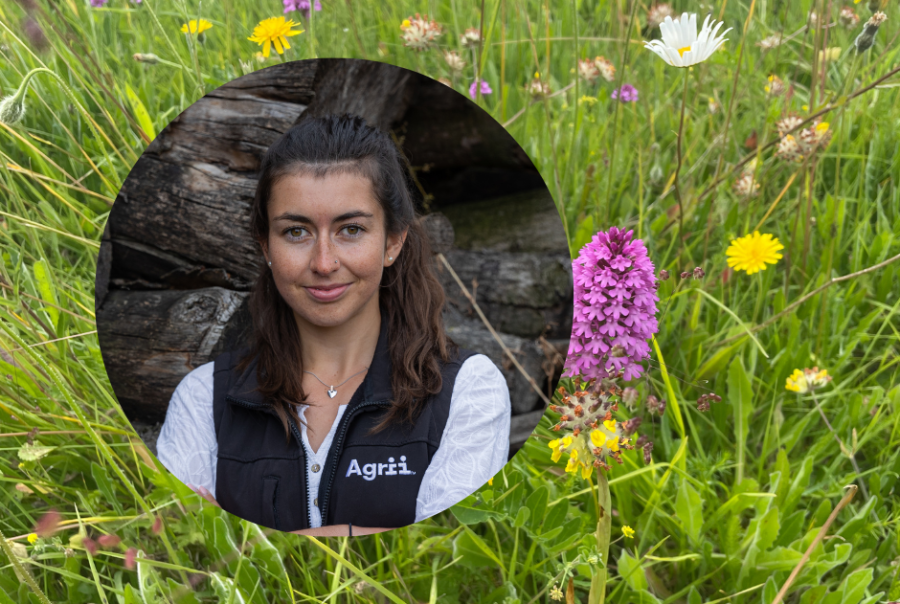With a recently appointed new government at the helm, Agrii’s Amy Watkins believes it’s a timely moment to be discussing what the future might look like for UK agriculture.
For one, she says, there’ll be huge pressure on land use. “I can see a lot of incoming change, but this should be viewed as opportunity, particularly in terms of natural capital.”
Margin over yield
As a result, Amy anticipates a further shift towards margin rather than yield, meaning growers will have to re-evaluate how to achieve the greatest gross margin/ha beyond straight food production, whether that be from environmental schemes, renewable energy or carbon sequestration, for example.
“We’re seeing change across the whole agricultural system and that’s either an opportunity or a threat, depending on perception. Some might see this as daunting, but embracing it will be critical in order to survive.
“One aspect which may prove challenging is access to finance such as loans. These are increasingly harder to obtain unless businesses can prove their sustainability credentials,” she highlights.
On a positive note, opportunity lies in the application of farm-level data, believes Amy. “Technology can help growers to make more efficient decisions, the most significant being targeted use of inputs – I see this as a huge area for future growth.”
Inspiring others
In terms of her role as sustainability manager, where does Amy believe her own career is heading? “I remember how inspired I was by people in this sector when I was starting out my career and I seek to do the same for others.
“Of course I’d like to have an impact, but what’s more important to me is sharing my knowledge and inspiring others to make a difference. As the old saying goes – if you want to go fast, go alone. If you want to go far and make a difference, go together.”
Amy says rather than a job title, she’s striving to live by two mantras. “One – work smarter, not harder, and two – success isn’t when everyone depends on you, but when you’re no longer needed.
“I hope to empower a team to deliver a cohesive vision, which is all about how you judge success – it’s when everyone has adopted your lead and you can leave them to it,” she says.
“And for me, I think it’s important to aim for a more balanced lifestyle where work, hobbies and family all have a place. Afterall, a lot of the skills you gain in life are transferable and as such, I use a lot of what I learn from my discipline in sport in my day-to-day job.”
Wider skill set
Furthermore, Amy puts her confidence and positive mindset down to skills she’s picked up from her hobbies. “Back to working smarter not harder – for those mad enough like me to compete in endurance sports, you’ll be practicing this every day.
“Particularly in triathlons, the more ‘eager’ athletes sprint at the start of the swim to prevent being entangled in the crowd of swimmers. However, maintaining this sprint pace throughout the entire race would lead to burnout and so you make the smart decision to hold a more ‘moderate’ pace after getting ahead of others,” she explains.
“Then on top of controlling your pace, you have to balance nutrition and hydration. Without one of these, there’s a chance of failure. This can all be applied to wider life.”
Motivation
As for motivation, she points out that farming is the biggest job on Earth and that’s why she loves it. “I truly believe we’re the solution to the challenges society will face during the next 25 years whether that be producing nutrition food, improving water quality, planting trees or re-establishing wildlife habitats.
“There aren’t many industries which can address the planet’s problems in the same way,” she stresses.
However, she suggests although agriculture is often guilty of being over-stretched, making time for others is important. “We’re all culprits of being too busy but there’s so much value to be had from making time for colleagues, family and friends. Ultimately, it’s about making people feel valued, and in return, learning from them,” she concludes.
This article stems from CPM’s Arable Farming 2050 feature, which was written to celebrate the magazine’s 25th anniversary.




